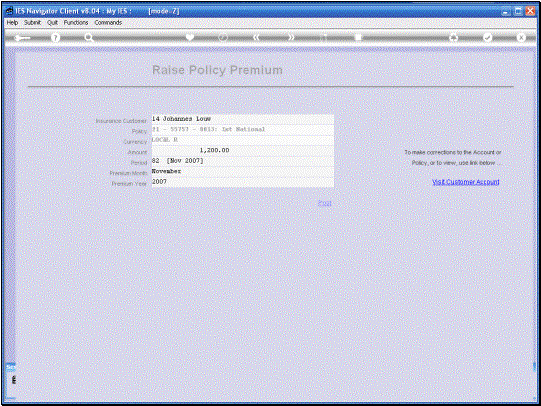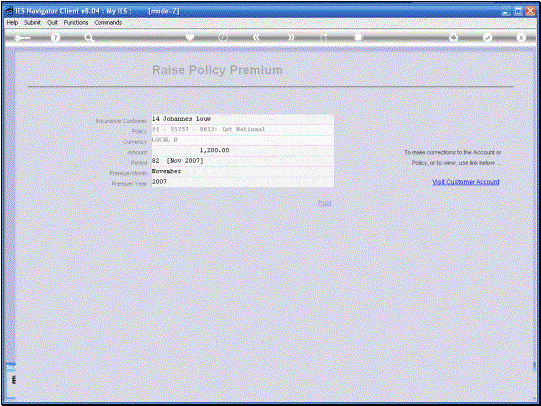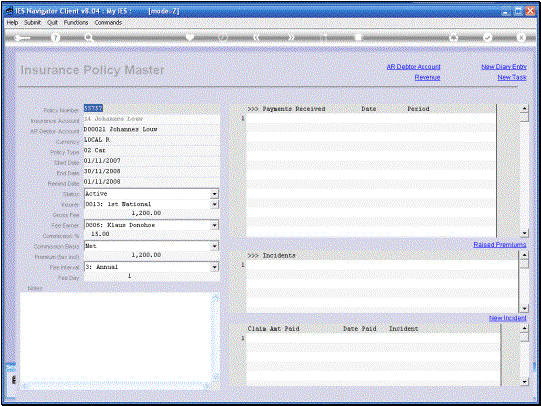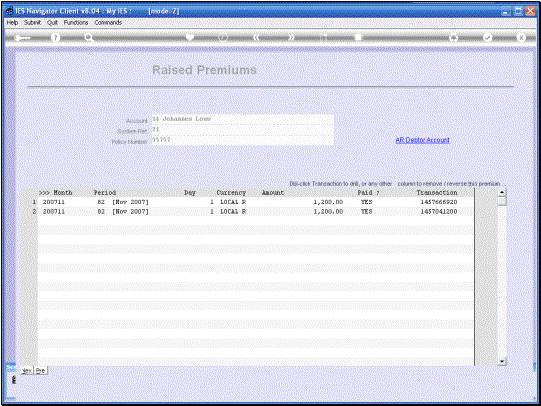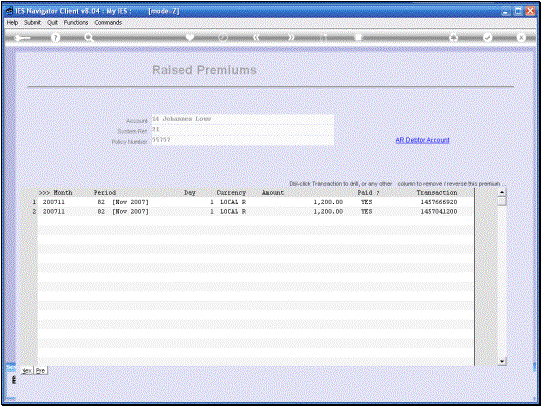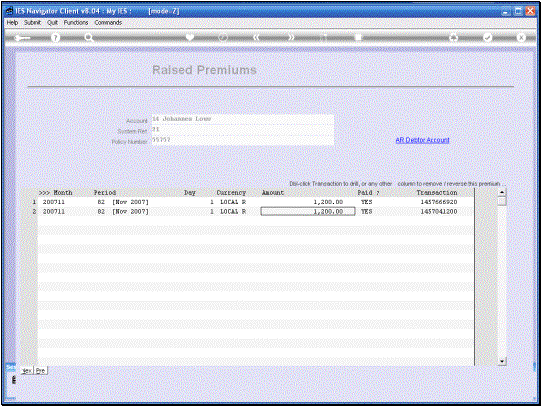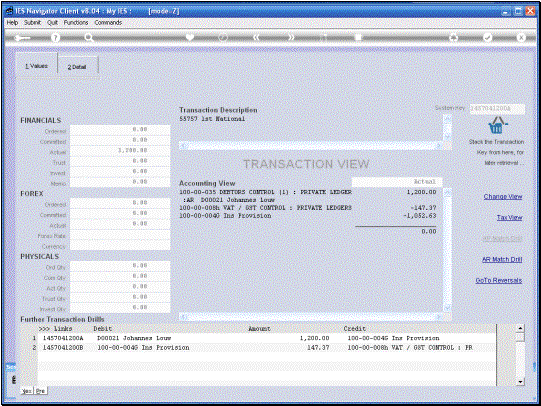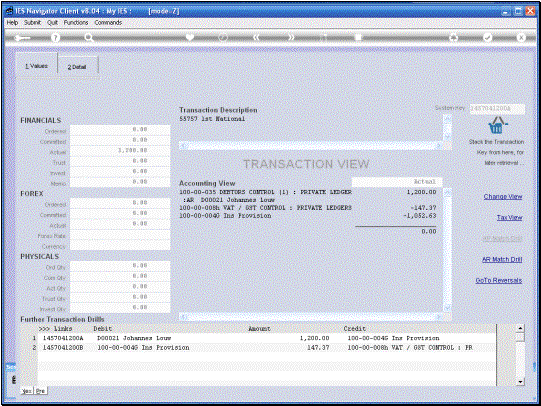In this session we want
to look at WHY, WHEN and HOW we Manually raise a Premium. Now in this example we
are looking at a Policy Master Record and we are going to go to the raised
Premiums just to have a look. |
Now
these 2 Premiums we see here, were automatically raised by the System, but we
cannot tell that by just looking at them. Although, in this case, they were
automatically raised. When we
automatically raise a Premium, it will appear here in the same fashion. |
|
Now here is the
scenario: Say we have already performed the Automatic Premiums for November
2007 and we now do a New Policy that will also start in November, then we are
not going to repeat Automatic Premiums. We will Manually raise
the 1st Premium for November and after that the System will take
over with the Automatic Premiums. |
|
|
It is absolutely
essential for the necessary Premiums that are due on a Policy, to be raised. So, in cases where the
System is not going to do it automatically, either because the Calendar month
has already been done, or perhaps there is no interval and we have use the
other Options for the Fee interval. Then in that case the
System is not going to do it automatically either. Then we will do it
manually. Now it is important to
do it because that raises a charge on the linked Customer Account. |
|
So
now we will go and do an example of how we Manually Raise a Premium. |
It is easy to do because
we just select the Customer and the System will offer us the Policies on this
Customer Account. We select the Policy and
then we select the Premium Month or Calendar Month and Premium, here. |
|
|
|
|
|
|
If the necessary Fields
on the Policy Master have already been specified, then of course the System
will default al these values. If the Premium Amount is
to be different, we can change it. If the Premium Month, and or the Year
should be different, we can also change that. |
|
|
|
|
|
In this case the
Calendar Month is already correct and I am simply showing how we may change
it if we need to. Now the Calendar
Month and Year is that Month for which the Premium is due or is being raised.
That is usually the same
as the Financial Transaction Period, but not necessarily so. For example, if a past
Premium has been overlooked, and is only processed now, but is for 4 months
ago, then we will still select the correct Calendar Month and Year. Although,
we may be processing it in the Current Financial Period because the Financial
Period for 4 months ago is already closed. |
|
From
the Policy Number and the Insurance Account the System will derive
automatically the lined A R Debtor Account that is going to be charged and
all we will do now is choose “Post”. |
|
|
|
And
now we can go and have a look on the specific Policy where that Premium was
raised. |
Now in this case the 1st
Premium here was raised automatically by the System. The 2nd one,
which is for the same month, 200711, is the one that was done manually. We can of course drill
into this transaction to see what happened in this case. It would probably we
wrong because we should not have 2 Premiums for the same month and we can
Reverse or Remove it but that is the subject of another Tutorial. |
|
|
And this is the
transaction set that was processed by the System by the Manual raising of
that Premium. |
In the majority of cases
the System will be raising the Premiums Automatically when we use that
Function from the Menu. But there are instances
where we will Manually raise a Premium because it has to be done. If we are using “Other” as the interval,
or we are in the situation where we have to raise the 1st Premium
because the Automatic Premium have already been performed for this particular
Month or Calendar Period, then we will do a Manual Raising of the Premium. |


























